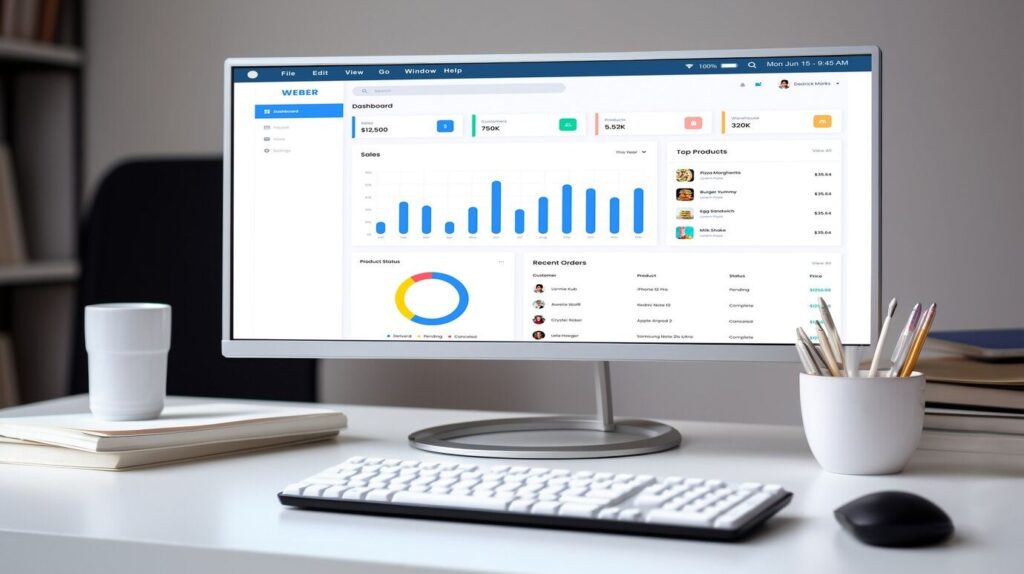In digital marketing, data is your best friend. Understanding how your audience interacts with your content and ads can help you refine your strategies and drive better results. Facebook Analytics, a powerful tool for businesses, offers valuable insights into user behavior and ad performance. This blog post will delve into how small businesses can leverage Facebook Analytics to track performance, understand audience behavior, and optimize their marketing efforts.

Understanding Facebook Analytics
Overview of Facebook Analytics
Facebook Analytics provides a comprehensive view of how your content and ads perform on the platform. It helps you track key metrics, understand your audience, and measure the effectiveness of your campaigns. For small businesses, Facebook Analytics is a crucial tool for making informed decisions and improving marketing strategies. It offers detailed reports and insights that can guide your efforts to connect with your audience more effectively.
Setting Up Facebook Analytics
Getting started with Facebook Analytics is straightforward. First, you’ll need a Facebook Business account. If you don’t already have one, setting it up is simple and can be done through Facebook’s business portal. Once your account is set up, you need to integrate Facebook Pixel with your website. The Facebook Pixel is a piece of code that tracks user interactions on your site and sends data back to Facebook Analytics. Installing this code is essential for gathering accurate data on how users from Facebook engage with your site.
Key Metrics and Reports
Understanding the key metrics in Facebook Analytics can help you measure the success of your marketing efforts. One important metric is Audience Insights, which provides detailed information about your Facebook audience, including demographics, interests, and behaviors. This data helps you understand who your audience is and how they interact with your content.
Another crucial metric is Engagement Metrics. These include likes, shares, comments, and other forms of interaction with your posts. High engagement rates indicate that your content resonates with your audience and can help you identify what types of posts generate the most interest.
For businesses running Facebook ads, Ad Performance metrics are essential. These include click-through rates, conversion rates, and return on ad spend. By monitoring these metrics, you can determine how effectively your ads are driving traffic and sales.

Using Data to Improve Performance
Refining Targeting
One of the key benefits of Facebook Analytics is its ability to provide in-depth audience insights. By analyzing this data, you can refine your ad targeting to reach the right people. For instance, if you see that a specific demographic or interest group is engaging more with your ads, you can adjust your targeting parameters to focus on this audience. This ensures that your ads are shown to users who are more likely to be interested in your products or services, improving the overall effectiveness of your campaigns.
A great example of this in action is our recent work with AppliedMotion, a physiotherapy clinic in Perth. We used Facebook Analytics to track engagement with their video posts about Physiotherapy for Kids https://appliedmotion.com.au/paediatric-physiotherapy-perth/. Specifically, we focused on users who had watched at least 30 seconds of the videos. This group was more likely to be genuinely interested in the clinic’s services.
Using this data, we set up a retargeting campaign aimed at these engaged viewers. By showing targeted ads to users who had already interacted with the video content, we were able to increase the likelihood of conversions. This approach not only helped AppliedMotion reach an audience that had already shown interest but also allowed us to deliver more relevant messages to these potential clients. As a result, the clinic saw a noticeable boost in appointment bookings and overall engagement with their ads.
By leveraging Facebook Analytics to understand and target engaged viewers, we were able to enhance the effectiveness of AppliedMotion’s marketing efforts and drive better results for their business. This example highlights the power of using data-driven insights to optimize ad targeting and improve campaign performance.

Optimizing Ad Campaigns
Facebook Analytics also offers valuable information on how your ads are performing. By reviewing metrics such as click-through rates and conversion rates, you can identify which ads are delivering the best results and which ones need improvement. For instance, if an ad with a particular image or message is performing exceptionally well, you might consider using similar creative elements in future ads. On the other hand, if an ad is underperforming, you can experiment with different formats, messages, or targeting options to see what works best.
Content Strategy
The data from Facebook Analytics can also inform your content strategy. By examining engagement metrics, you can determine what types of content resonate most with your audience. For example, if you find that posts with certain themes or formats (like videos or infographics) receive higher engagement, you can incorporate more of this content into your strategy. Additionally, understanding when your audience is most active can help you schedule posts for maximum impact.
Practical Tips for Small Businesses
Regular Monitoring and Analysis
To get the most out of Facebook Analytics, regular monitoring is key. It’s not enough to set up your analytics and then forget about it. Make it a habit to check your analytics dashboard regularly to keep track of performance and trends. This allows you to quickly identify any issues or opportunities and make data-driven decisions. For example, if you notice a sudden drop in engagement, you can investigate the cause and adjust your strategy accordingly.
Setting Realistic Goals
Using the data from Facebook Analytics, you can set realistic and achievable goals for your marketing efforts. Whether you’re aiming to increase website traffic, boost engagement, or improve ad performance, having clear goals helps you stay focused and measure success. For example, you might set a goal to increase your click-through rate by a certain percentage over the next quarter. By setting specific, measurable, and time-bound goals, you can track your progress and make necessary adjustments.
Continuous Improvement
Digital marketing is an ongoing process of testing and optimization. Use Facebook Analytics to guide your continuous improvement efforts. Regularly test different ad variations, content formats, and targeting options to see what works best. For instance, you might conduct A/B tests to compare the performance of two different ad creatives or post formats. Analyzing the results of these tests can provide valuable insights and help you refine your approach over time.
Conclusion
Facebook Analytics is a powerful tool for small businesses looking to enhance their digital marketing efforts. By understanding and utilizing the data provided, you can refine your targeting, optimize your ad campaigns, and develop a content strategy that resonates with your audience. Regular monitoring, setting realistic goals, and focusing on continuous improvement will help you make the most of your analytics and drive better results for your business.
Additional Resources
For more information on using Facebook Analytics, consider exploring the following resources:
- Facebook Business Help Center: Offers detailed guides and tutorials on using Facebook Analytics and other business tools.
- Facebook Blueprint: Provides free online courses and certifications on various aspects of Facebook marketing and analytics.
- HubSpot Blog: Features articles and tips on digital marketing analytics and strategies.
If you have any questions or need assistance with your Facebook Analytics, feel free to reach out or consult with a digital marketing expert to help you make the most of your data.
